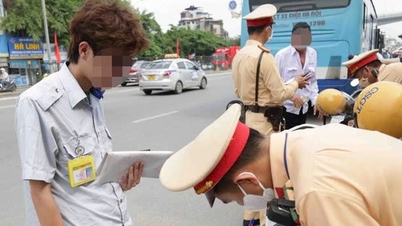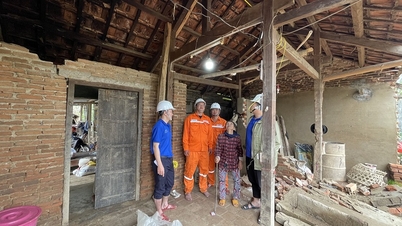I purchased a plot of land worth 5 billion VND and paid a deposit of 200 million VND. Both parties agreed to a date for notarization and the handover of the remaining payment. However, despite two scheduled meetings, the seller repeatedly made excuses to avoid attending. I believe this is a significant waste of both our time. Because they violated the deposit agreement, I want to reclaim my deposit, but they refuse to return it.
So what should I do to get my money back? Can I invite a bailiff to record the incident if they fail to show up on time again, so I have grounds to claim my money back?
Reader Ho Thuy.
Expert's answer
Mr. Nguyen Tien Phap, Head of the Saigon Bailiff Office, advises:
According to Article 328 of the Civil Code: "If the party receiving the deposit refuses to conclude or perform the contract, they must return the deposited property to the depositor and an amount equivalent to the value of the deposited property, unless otherwise agreed."
According to the information you provided, the landowner has breached the deposit agreement between the parties. Therefore, in this case, you have the right to demand that the landowner return the 200 million VND deposit and also to penalize the landowner with an amount as stipulated in the deposit agreement. If the deposit agreement does not specify a penalty rate, you can penalize the landowner with an amount equal to the deposit, which is 200 million VND.

According to Mr. Nguyen Tien Phap, if the landowner violates the contract, the buyer has the right to invite a bailiff to witness the process and create a written record.
"It's crucial that you establish evidence of the landowner's breach of the deposit agreement. Because if you demand immediate forfeiture of the deposit, they might argue that it's because the parties haven't agreed on a location for notarizing the contract, or you haven't notified them to go to the notary office, or they went to the notary office but you weren't present," Mr. Phap said.
Therefore, to obtain evidence that the landowner violated the deposit contract, or at least to prove that you did not violate the contract, you have the right to invite a bailiff to witness the creation of a written record (Article 36 of Government Decree 08 of 2020).
Therefore, you need to follow these two steps:
Step 1: You notify the landowner of the time and place for signing the notarized contract .
The notice states that the landowner has twice "missed" the notarization appointment, and this is the final invitation. If the landowner fails to appear and sign the transfer contract, it will be considered a refusal to sign the transfer contract, and the received deposit will be refunded and a penalty will be imposed. In the notice, you need to clearly state the time and place of notarization and request that all necessary documents be brought.
If the deposit agreement stipulates that notifications between the parties must be sent in writing to the addresses of both parties, then you must comply with that agreement.
The process of you sending text messages, making phone calls, or sending notifications will be accompanied and witnessed by a bailiff, who will then create a written record. Regardless of whether the landowner accepts, refuses, or avoids receiving the notification, your goodwill actions, along with the bailiff's written record, will still be sufficient proof that you have fulfilled your obligation to deliver the notification and are ready to proceed with the transaction.
Step 2: Get the documents notarized according to the information provided .
When going to the notary office, you must bring your identification documents, relevant papers, and money to pay the landowner when signing the transfer contract. Additionally, you should text or call the landowner to inform them of your arrival at the notary office and request their presence to sign the transfer contract.
If the landowner is present and cooperates in signing the transfer contract, the transaction is complete. Conversely, if the landowner is absent, or present but refuses to sign the contract or receive payment as agreed, it means they have breached the deposit agreement.
The entire incident will be witnessed by a bailiff, who will create a written record. This serves as evidence proving the landowner's breach of the deposit agreement. From this, you have the right to demand the landowner return your deposit and pay any penalty as agreed. If the landowner fails to comply, you can use the written record to file a lawsuit in court.
Source link






































![[Image] Close-up of the newly discovered "sacred road" at My Son Sanctuary](/_next/image?url=https%3A%2F%2Fvphoto.vietnam.vn%2Fthumb%2F1200x675%2Fvietnam%2Fresource%2FIMAGE%2F2025%2F12%2F13%2F1765587881240_ndo_br_ms5-jpg.webp&w=3840&q=75)













































































Comment (0)